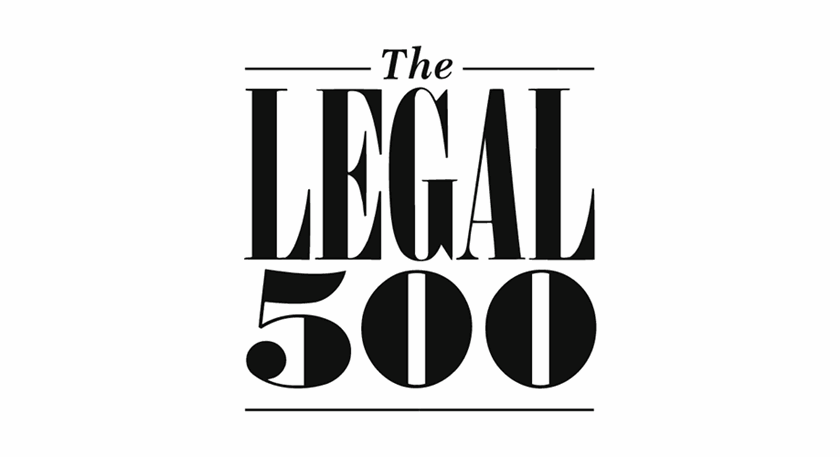Special Educational Needs: New Government Proposals
Insight

At the end of March, the Department for Education published their special educational needs and disabilities (SEND) and alternative provision (AP) green paper and opened a consultation on the proposals which closes at 11.45pm on 1 July 2022.
This green paper is the output of a review that was commissioned in 2019 which had the purpose of addressing the apparent wildly-differing outcomes for pupils with SEND compared to their peers. The review considered the system from early years to higher education.
Key findings
The green paper (which can be found here) runs to 104 pages (with summary versions available on the website). It identified three key challenges which will resonate with many schools:
- Challenge 1: that the outcomes for children and young people with SEN or in AP are poor;
- Challenge 2: that navigating the SEND system and AP is not a positive experience for children, young people and families;
- Challenge 3: despite unprecedented investment, the system is not delivering value for money for children, young people and families.
Numerous further challenges and findings are identified in the report including:
- there is significant inconsistency in how young people’s needs are met and a lack of clarity about what services can be provided to them;
- too often decisions are made based on where a child lives or is educated rather than what they need;
- the current system is too bureaucratic for families and then adversarial when there are issues or complaints; and
- delays in providing EHCPs and an uptick in the number of requests for EHCPs means that young people are experiencing significant delays in accessing the right support.
The green paper sets out some concerning statistics including:
- only 22 per cent of SEND pupils attain the expected numerical and written literacy rates; and
- by age 27, they are less likely to be in sustained employment and more likely to be a victim of crime than non-disabled pupils.
The green paper proposed a number of changes “to turn a vicious cycle into a virtuous one” and to create a more inclusive system.
We consider that this review comes at a critical time and that school leaders could usefully review the green paper and use it as an opportunity to place a real focus on considering their offering to and support for SEND pupils. The further context is that the recent data from the SEND Tribunal shows that appeals to that Tribunal have risen.
What are the proposed changes?
In all, there are 31 proposed changes, which can be read in full here (from page 14 onwards). We have listed those below which may be of most relevance to schools:
- establish a new system to set nationally consistent standards for how needs are identified and met at every stage;
- a review and update of the SEND Code of Practice;
- establish new local SEND partnerships seeking to bring together education, health and care and local government who will be asked to produce a local inclusion plan for the area on how they will meet national standards;
- a standardised and digitised EHCP process and template;
- more support for families by offering parents and carers tailored lists of settings drawn from local plans;
- national “dashboards” to increase transparency and improve accountability and planning of SEND support systems;
- a mandatory mediation between parents and local authorities before registering a dispute with the SEND Tribunal, to reduce the number of appeals to the SEND Tribunal;
- increased investment;
- fund more than 10,000 additional respite placements through an investment of £30 million;
- set out a clear timeline that, by 2030, all children will benefit from being taught in a family of schools, with their school, including special and alternative provision, in a strong multi-academy trust (MAT), or with plans to join or form one, sharing expertise and resources to improve outcomes;
- develop a bespoke performance framework for alternative provision which sets robust standards focused on progress, re-integration into mainstream education or sustainable post-16 destinations;
- deliver greater oversight and transparency of pupil movements including placements into and out of alternative provision;
- equip the Department for Education’s (DfE) new Regions Group to take responsibility for holding local authorities and MATs to account for delivering for children and young people with SEND locally through new funding agreements between local government and DfE;
- work with Ofsted/Care Quality Commission (CQC) on their plan to deliver an updated Local Area SEND Inspection Framework with a focus on arrangements and experience for children and young people with SEND and in alternative provision.
The green paper makes clear that schools will be expected to change their “culture and practice” to be more inclusive and better at identifying and supporting needs so as to put the school “on a par with specialist settings”. There are changes in the report expected to help facilitate the change in culture which include:
- New training requirements would make a new Special Educational Needs Co-ordinator (“SENCo”) NPQ to replace the current training. The government believes this would improve leadership expertise in schools. The government also recommends the SENCo be given appropriate support as the review found too much time being taken up with administrative matters.
- Change to mechanisms for alternative provisions for pupils facing multiple challenges in order to integrate them into mainstream education. The SEND Partnerships as part of the local inclusion plans, should focus on the planning and delivery of alternative provisions at an early stage. The government has promised to provide an alternative provision delivery plan.
The government is giving everyone the opportunity of participating in this consultation and is asking for responses on 22 questions. A full list can be found on pages 80 – 82 of the SEND Review. Submissions can be made here. The consultation closes at 11.45pm on 1 July 2022.
The Equality Act 2010 and fostering a culture of inclusion for pupils with disabilities
The review talks about fostering an inclusive culture and in this context it serves as a good reminder of a school’s legal duties under the Equality Act 2010.
School leaders should be aware of the obligation not to discriminate directly, indirectly, harass or victimise a pupil on the grounds of disability. Section 85 of the Equality Act gives further education specific obligations meaning that schools cannot discriminate in:
- decisions whether or not to offer, or the terms of, admission to the school. The Technical Guidance (here) states that it is irrelevant whether the school knew of the disability at the time admission was offered;
- providing, or failing to provide, education to pupils;
- providing, failing to provide, or the terms of providing access to a benefit facility or service;
- excluding the pupil; or
- subjecting the pupil to any other detriment.
We sometimes see disability cases arising in the context of disciplinary issues where a school may be seeking to sanction a child for behaviour that might be part of their disability. This can particularly arise in ASD cases. The Technical Guidance gives a good example of this. A pupil with ASD “flaps his arms” after being told to move by a substitute art teacher from his normal seat because it was not appropriate for the activity they were doing. The substitute teacher disciplines the pupil for what she perceives to be threatening behaviour, unaware of his ASD diagnosis and the same seat was recognised by the school as a reasonable adjustment. The “flapping of the arms” is connected to the disability and therefore the disciplinary decision may be discriminatory. The school ought to have informed the substitute teacher.
Reasonable adjustments for disabled pupils
Section 85(6) places a specific obligation on a school to make reasonable adjustments for disabled pupils. What will be reasonable depends on the circumstances, size of the school, resources and a range of other factors that depend on the individual person and the nature of their disability. It could involve changes to classroom environments or the provision of auxiliary aids. Schools will naturally consult the child, parents or carers, medical professionals, the EHCP and expert bodies or charities for example about helpful reasonable adjustments.
Other considerations for making an inclusive environment for SEND pupils
Schools who want to create an inclusive culture can adopt a number of principles and actions, and we would suggest that the below is the minimum a school should do to help achieve an inclusive environment:
- Eliminate discrimination, harassment, victimisation by advocating a zero-tolerance approach to these forms of harm as they can have a real impact on a child and their family and cause legal risk and liability for a school. "Zero-tolerance" in practice means taking action in every case which is proportionate to what may have happened;
- Ensuring that policies and procedures are up to date and reflect best practice and guidance;
- Ensure a tailored approach for each SEND pupil rather than a generic response;
- Ensure that all staff are effectively and routinely trained on equality, diversity and inclusion and that training is tailored to the school rather than "off the shelf" and generic. Training should be quality assured;
- Ensure that staff understand the applicable policies and procedures and can respond appropriately to any issues;
- Senior leaders should work with governors in developing a strategy for embedding an inclusive culture and an equality action plan. More information about this can be found in the Resource that we produced for AGBIS available on their website here.
The above is a brief summary and detailed guidance is provided by the EHRC Technical Guidance for Schools and the DfE’s Equality Act 2010: advice for schools.
With special thanks to Alex Evans, a paralegal in our Employment Team, who helped prepare this briefing.
If you require further information about anything covered in this briefing, please contact Maria Strauss or your usual contact at the firm on +44 (0)20 3375 7000.
This publication is a general summary of the law. It should not replace legal advice tailored to your specific circumstances.
© Farrer & Co LLP, May 2022







